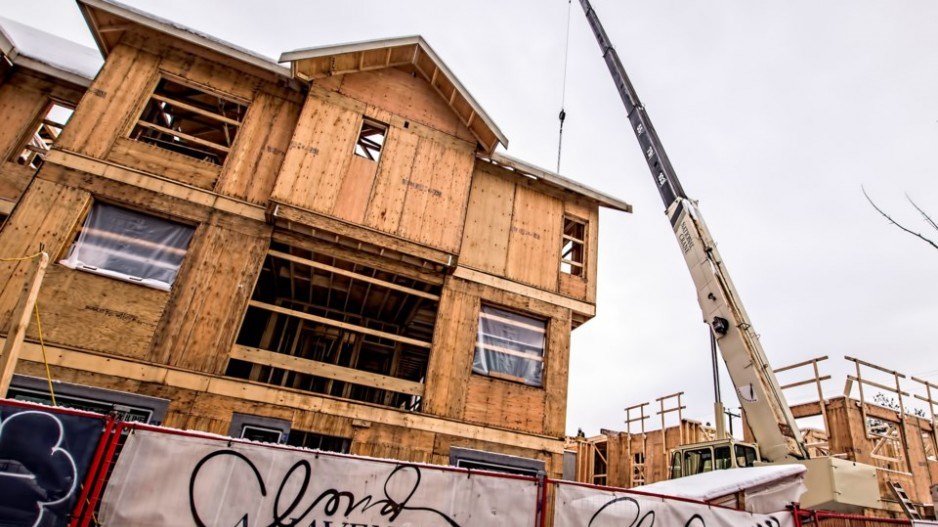In terms of provincial government priorities, it’s no surprise there is a heavy focus on housing affordability and expansion of supply.
As part of this, the provincial government frequently builds out housing policies that are heavily influenced by the projected population estimated to be moving into the region in the coming years. Estimates typically outline vast numbers of future residents for whom regional housing availability doesn’t currently exist.
It’s a fair assertion that the cost of housing has risen significantly over the past decade, largely due to governmental failure to ensure that supply has kept up with demand. In recent years, however, the way governments have handled this issue is worthy of scrutiny. The damage is done, and we now live in a high-demand, low-inventory region with eye-watering price points for entry.
Certainly not an ideal situation. But while the province has taken rapid steps to try to address the supply shortage, a major issue that has arisen, particularly over the past year, is the pushback from numerous municipalities who consider the growth rate to be too fast and the process to be lacking in the necessary planning detail that is typically part of the community expansion process. Much of the stated concern has often been around funding for infrastructure such as sewage expansion, as well as related amenities.
Canada is by no means isolated in dealing with the issue of housing affordability. A recent article in the Financial Times states that “half of respondents in OCED nations are dissatisfied with the availability of affordable housing, according to Gallup Analytics figures.”
We may see this as a regional issue, but it’s a developed-world problem, affecting nations around the globe simultaneously.
The nature of capitalism is predicated upon continual incremental growth. Ongoing population expansion is an accepted part of that model. Adding increased numbers of Canadian residents on a yearly basis means more people eating out, buying clothes and other products, investing, and joining the workforce — all of which serve to boost our generally limp Canadian Gross Domestic Product (GDP) statistics. In fact, without immigration, our GDP of the past decade would be in a visible freefall.
Now let’s factor this against some sustainability basics. Regional planning is a complex process. When it comes to expanding communities to welcome new residents, aside from housing there are many ancillary services also required. Schools. Medical clinics. Park space. Recreational facilities. Access to transportation.
The availability of these services is much of what makes a “livable region” actually livable. Regarding the potential population increase of any community, these core services need to be more of a primary concern. In short, support services and recreational facilities need to be expanded to directly coincide with population growth or the livability of a given community will directly decline along with that increase in population.
To achieve this balance, the province needs to implement major policy changes immediately. Over the past year, we’ve seen multiple mayors from B.C. municipalities give pushback to the federal housing minister, B.C.’s premier and provincial housing minister on multiple supply-related issues. While regional affordability is a sizeable issue, our three levels of government publicly fighting with each other is also a major problem.
Regardless of which party wins the upcoming provincial election, a new, more collaborative approach is needed. Historically, municipalities have been a big part of the problem when it comes to slowing necessary growth with bureaucratic processes, and resistance to needed expansion.
As a result, the provincial government has taken a commendable but somewhat heavy-handed approach by issuing housing targets to key municipalities. But these targets, as currently implemented, are leaving many municipalities scrambling and having to forgo best-practice urban planning. The problem here isn’t what the province is doing, it’s how they are going about it.
A more collaborative and careful approach is needed that better collaborates with federal, municipal and regional governments in addition to First Nation governance. Notably, there has been a major increase in housing development built on First Nation land which is not required to conform to municipal or regional plans. In short, we have multiple levels of government with oft-differing priorities and approaches, and this is a problem.
Housing expansion is of vital importance, but so is regional livability. These are two sides of the same coin. At the outset of the upcoming election, it’s vital that the players above develop new processes to work more collectively and aim to achieve sustainable, well-planned regional growth in Metro Vancouver and around the province.
Across this week, the Union of B.C. Municipalities convention is taking place in Vancouver with municipal staff from across British Columbia attending seminars and passing collective resolutions around priority issues. A major point of concern will be the Conservative Party of BC and the significantly differing approach they will likely take to housing policy should they win the forthcoming provincial election.
If they were to start repealing housing legislation left and right, this would cause a whole new set of problems and challenges. One would hope that before implementing any change, B.C. Conservative Leader John Rustad and company would first collaborate with private-sector policy experts to help determine the wisest path forward.
While it’s a primary policy focus and a major issue of concern for British Columbians, housing expansion at all costs is not the path forward. Community well-being and forward-thinking planning should be given parallel attention. Smart governmental oversight means all levels of government acting collectively to ensure the prosperity of British Columbia well into the future. Building out a strong future for B.C. starts with assuring our provincial housing policies are giving thought to the region 50 years from now and not just focused around today.
Trevor Hargreaves is vice-president, policy and research, at the British Columbia Real Estate Association



